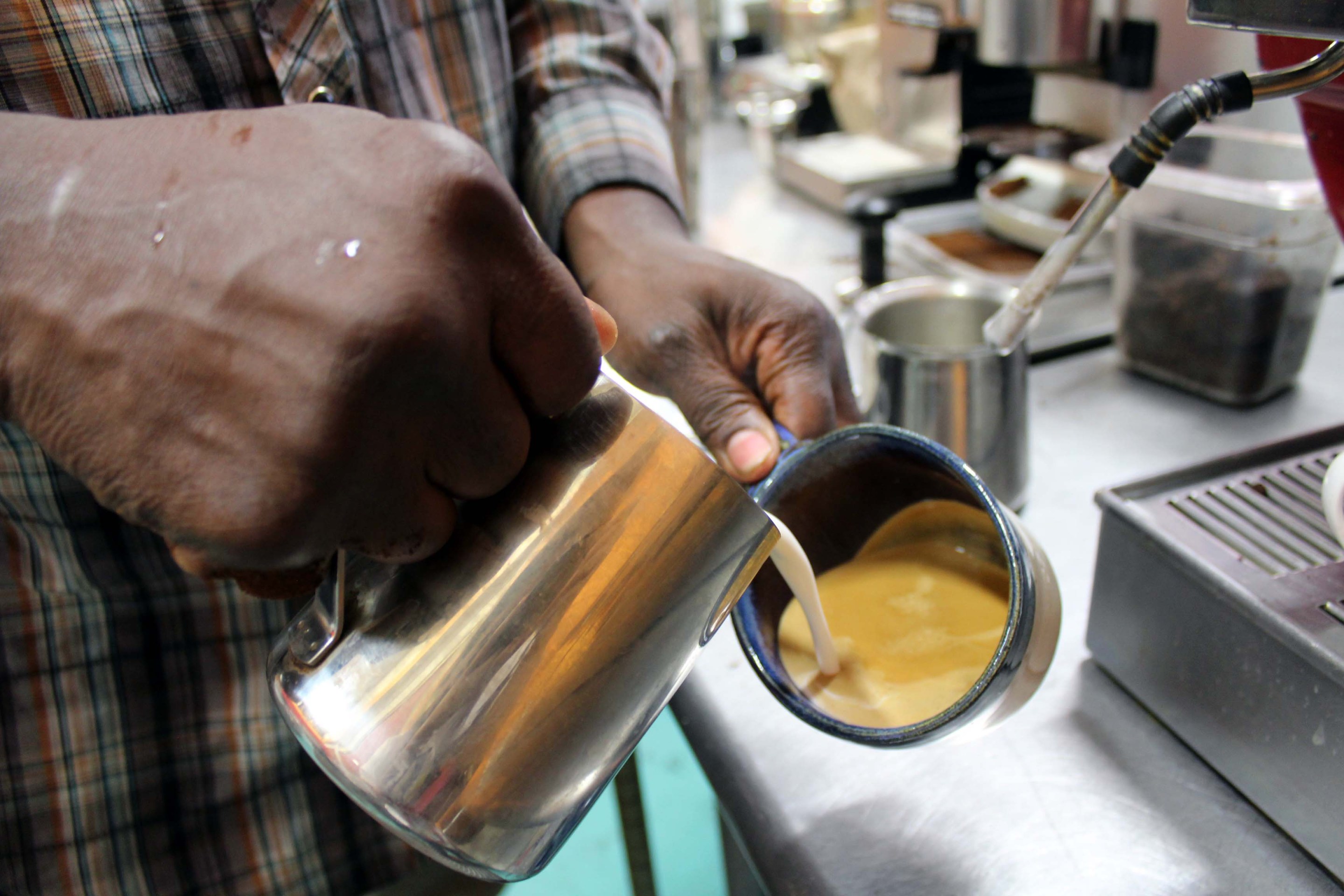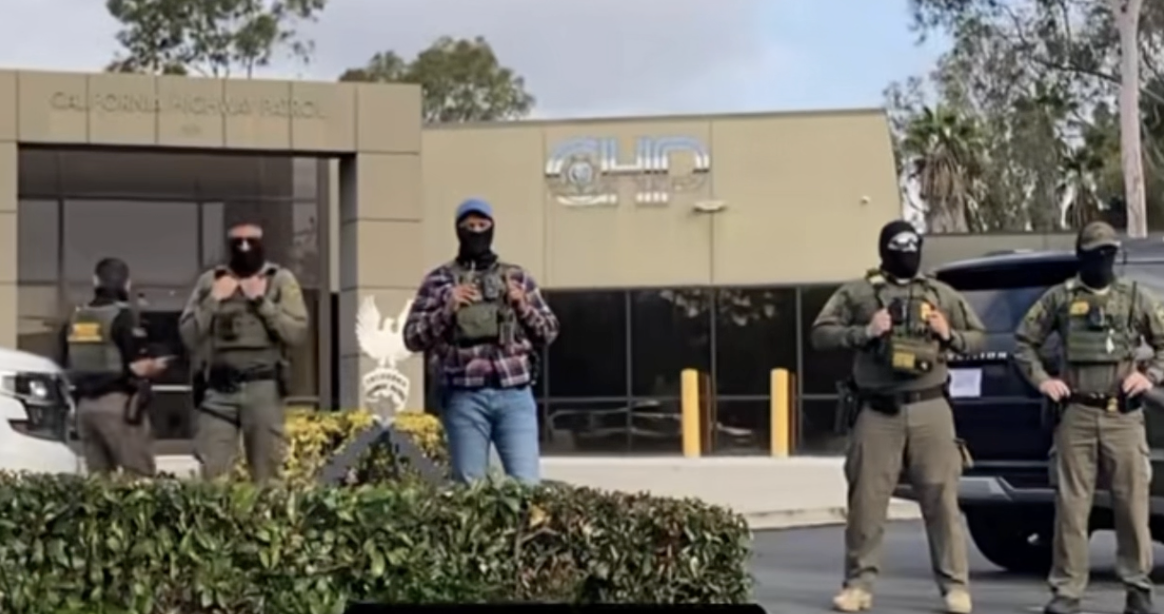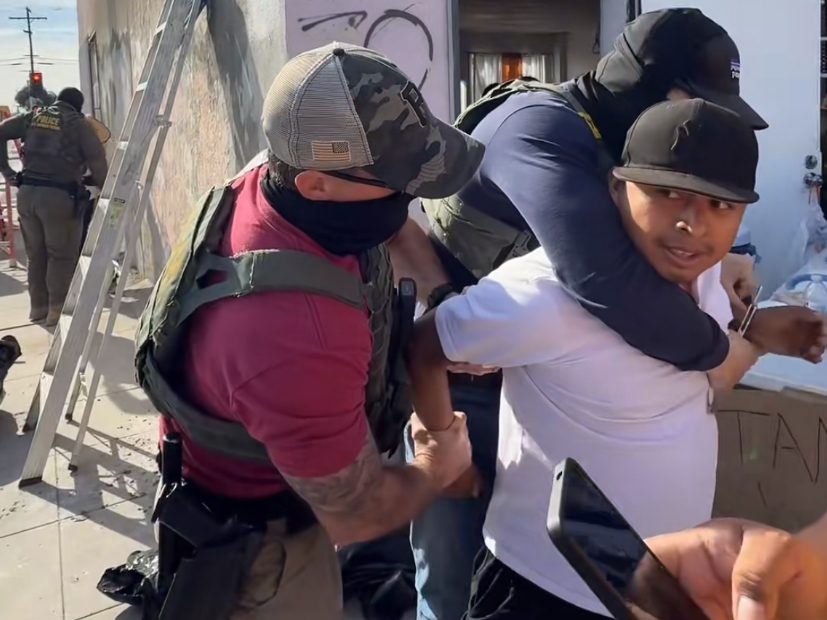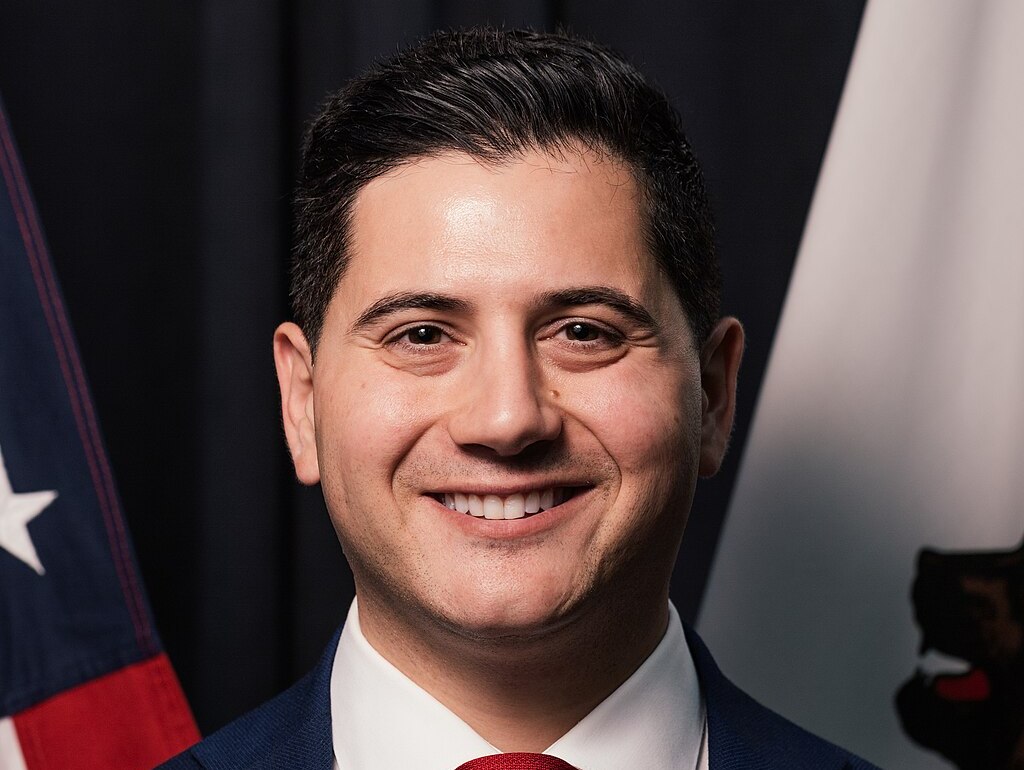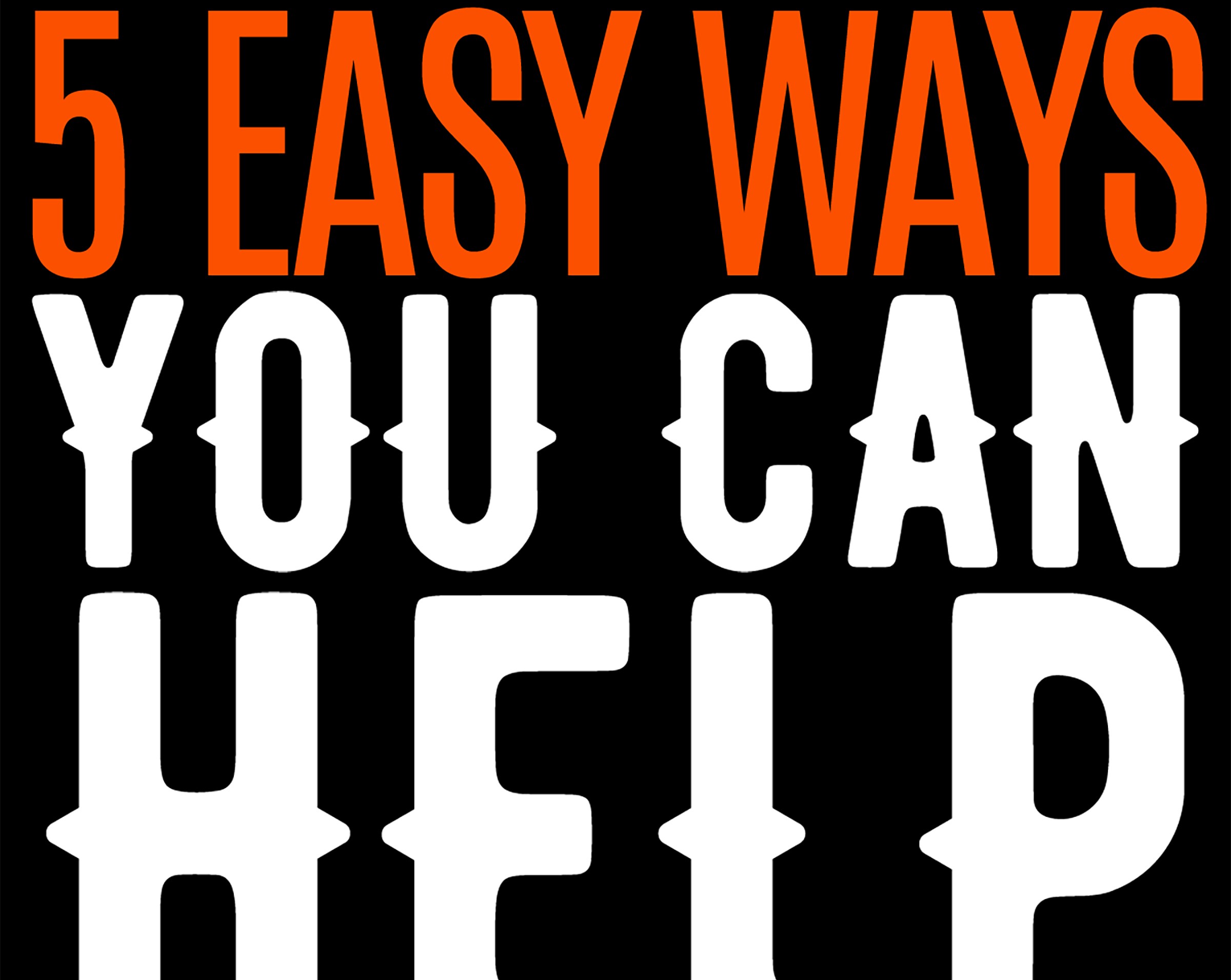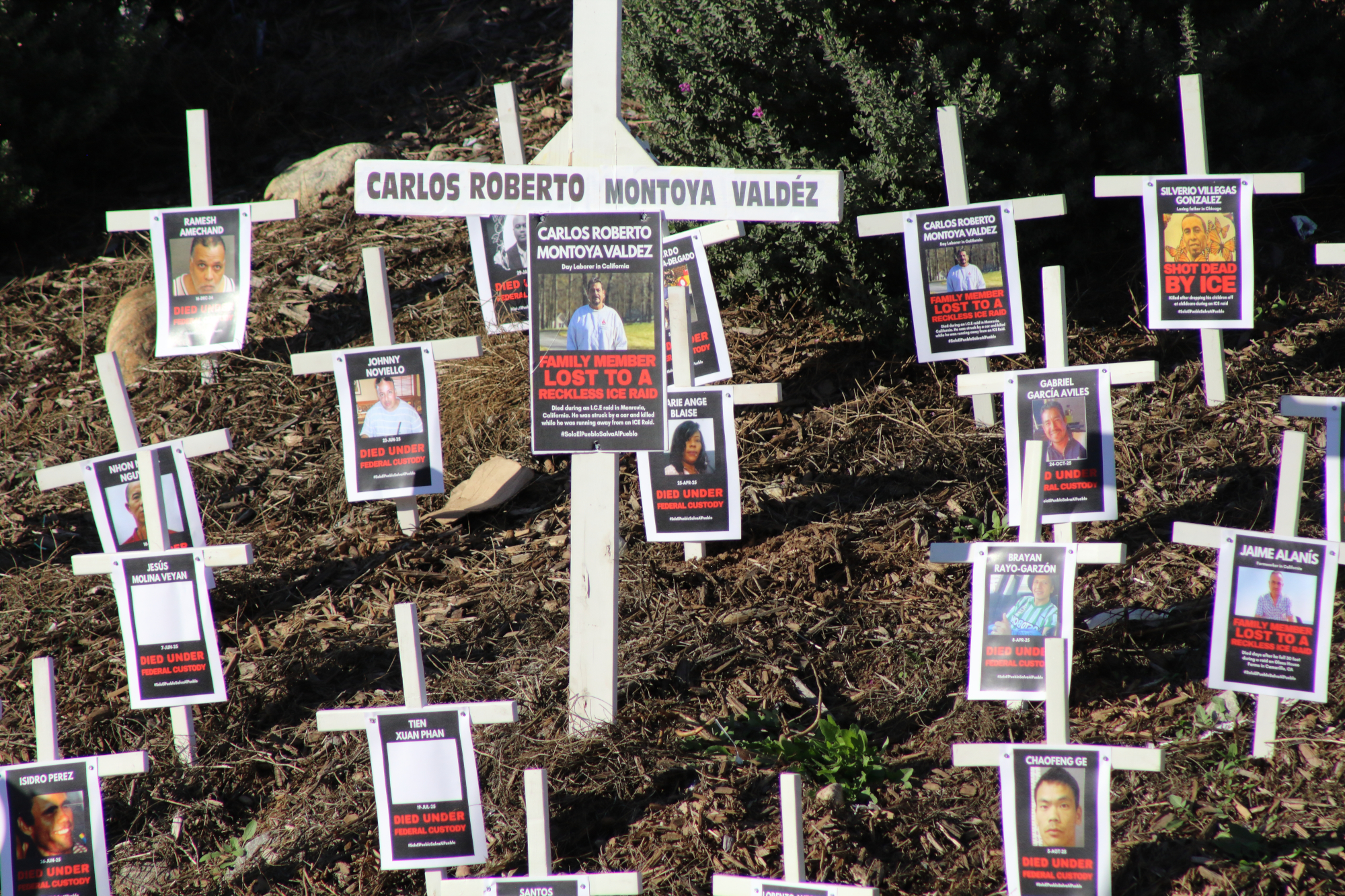[dropcap size=big]A[/dropcap]nthony Jolly used to set up his bicycle-driven coffee cart at the corner of Crenshaw Boulevard and Exposition Boulevard every morning. Positioned directly across the Metro Expo Line for three months, he saw many people from different walks of life: executives in suits, mothers with their children, and students.
Jolly created a community of travelers who stopped by daily for their cup of coffee. People used to blow their car horns in support and at one point, a woman stopped her car at the street light and threw out a $5 bill to Jolly. "She tried to get me killed," he recalled, laughing. "But I got the 5 dollars."
Earlier this year, Jolly took his cart to a brick-and-mortar space, opening his coffeehouse Hot and Cool Cafe in April 2018. Located in the heart of Leimert Park – a historic L.A. neighborhood in South Los Angeles known for its Afro-centric arts community – the coffeehouse has become a hub for community organizing, open-mike nights, and local music.
RELATED: Support Stories Like This & Become a Member of L.A. Taco Today!
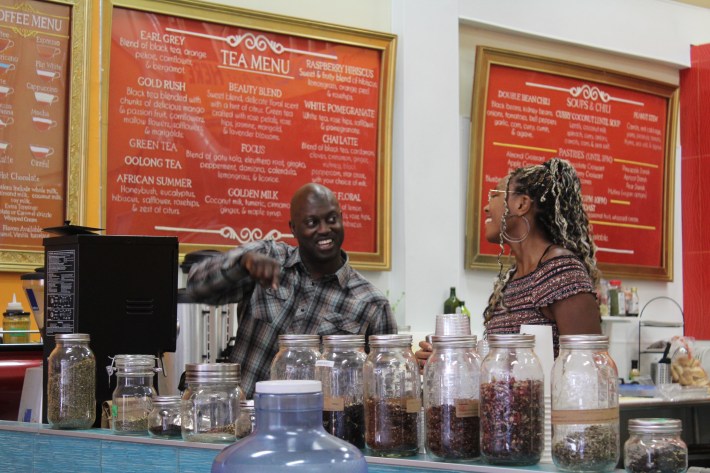
In Love With Coffee
[dropcap size=big]C[/dropcap]offee is more than just a drink to Jolly. "Coffee has always brought people together to stimulate ideas and perspectives," he said. His first encounter with coffee was in 1996 when he began working at a Starbucks in his hometown Washington D.C. There, he developed a passion for coffee, specifically Ethiopian coffee. That's when Starbucks had "really good coffee," he said.
He then moved to Colorado after meeting his wife, and began working for a company that worked with coffee farmers in Ethiopia. After living in Ethiopia for a year and learning the politics of coffee roasting, he taught himself how to roast. Soon he began roasting his own coffee in his backyard in Colorado.
Jolly had his first child with his wife and moved to San Jose, California. He launched his roasting company Pink Cloud Coffee Roasters, and pitched his coffee to grocery stores like Whole Foods Market.
"Whole Foods loved it and wanted me to put the coffee in all the Northern California stores. But I [was] still roasting out my backyard so [I was] like, 'I need a place to roast. And if I get a place to roast, I'm going to sell coffee too,’" he said.
RELATED: Photos ~ Black Books Sessions Celebrates Ten Years in Long Beach
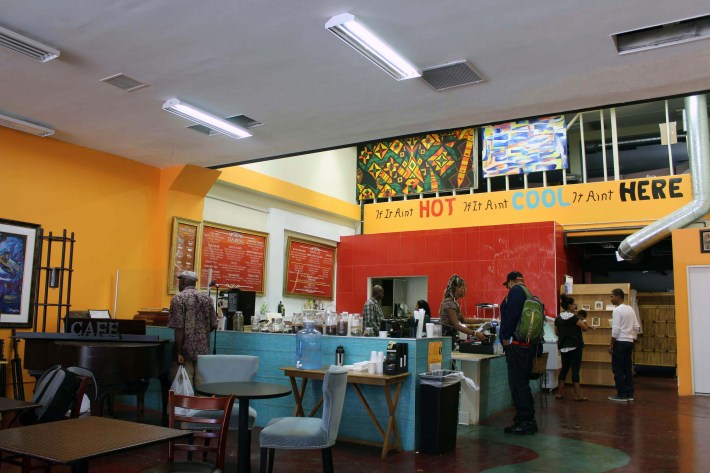
Moving to Leimert Park
[dropcap size=big]J[/dropcap]olly began to look for possible coffeehouse locations in San Francisco and Oakland, but had no luck. He attended a conference in Seattle, where he met someone who was shocked to see an African American in specialty coffee, he said. "He saw me and was like, 'Hey African-Americans aren't in coffee, what you doing here?' [And] I was like, 'I am,'" he said.
The man told him about his friend Eric Moore in Los Angeles, who was looking to open a coffeehouse. He gave Jolly his contact information and a year later, Jolly visited Moore to talk about the possibility of opening a coffeehouse.
Jolly was hesitant when he first visited Leimert Park Village. He said the building where the coffeehouse would be looked abandoned. Through Moore, Jolly met community leaders who told him that the neighborhood was experiencing gentrification. "They told us that we should get in right now to have a presence. African-Americans should have a presence," he said.
Jolly spent long hours in Leimert Park, researching its history and learning the community's concerns. "I want to be at the forefront of change as a person of color to show people of color that you can be in a business like coffee, where there's not many African-Americans."
RELATED: From a Stutter to Tonight Show ~ How Rudy Francisco Became a Poetry Slam Champion
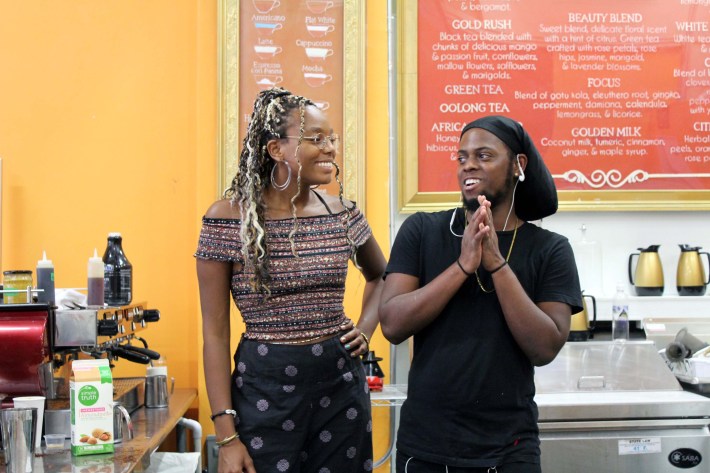
Building a Community
[dropcap size=big]W[/dropcap]alela Nehanda, who uses the pronouns they and them, is an artist who became a community organizer because they felt their work wasn't doing enough.
They got into community organizing after being invited to perform a poem at a healing event that the Black Lives Matter organization held in 2016. The event was in honor of Philando Castile and the many black men and women killed by police that year.
Nehanda, 24, was personally invited by Shamell Bell, an original member of the movement and core organizer with the L.A. chapter. Nehanda performed a poem titled Die For It in honor of Sandra Bland. "I started doing my poems at rallies through the megaphone and I started seeing how that was impacting people," Nehanda said.
"I started seeing the difference between activism in organizing because a lot of people call themselves activists which is fine because you show up to the rally, but the organizers are the ones who organize the rally, and I was very interested in that."
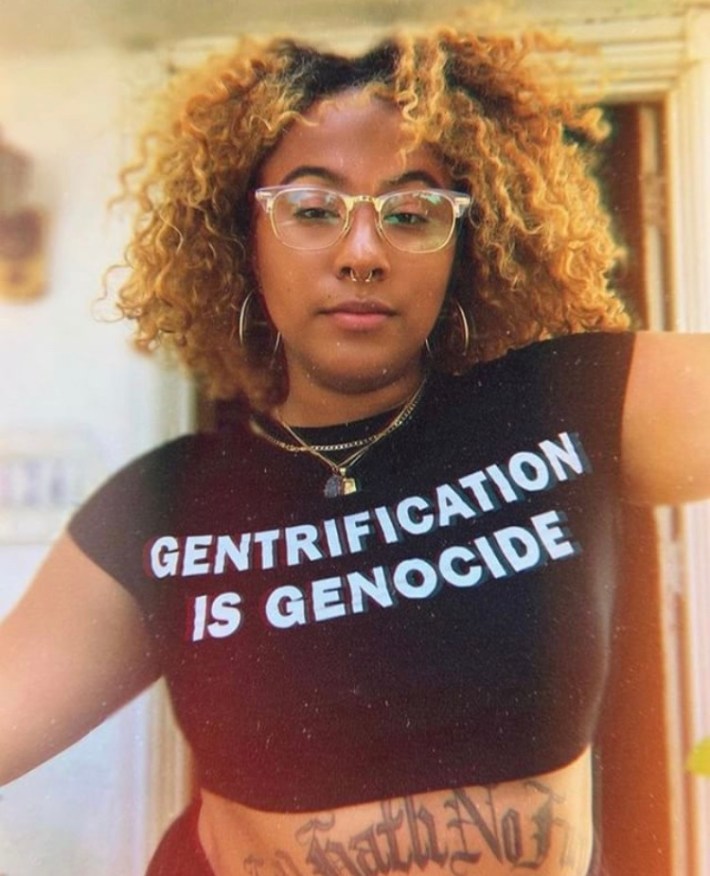
Nehanda's experience as an organizer lead to the creation of Spit Justice. Spit Justice is a black-led open mic and workshop that centers around community healing and inspiring radical change.
At first, Nehanda was apprehensive of a new coffeehouse coming into the Leimert. They said anytime there's development in a neighborhood, people are naturally going to be concerned.
"Especially with the black business-owning class, they can still perpetuate gentrification. And so I was naturally very concerned about that from the beginning because not all our skin folk are our kinfolk,"Nehanda said.
As someone who identifies as extremely radical, Nehanda said it was important that Jolly knew exactly what his intentions were. Seeing the coffeehouse's commitment to servicing the community, and Jolly's awareness and openness to learning, was the validating factor that led to a collaboration.
"I told him what I wish for Spit Justice and he was the first place that was open to it so that was a big one. They were just open [to the idea]. Most places weren't," Nehanda said.
Spit Justice's first event at Hot and Cool Cafe had over 50 guests. "People want it," Nehanda said. "This space that we're creating is to facilitate how do have really hard conversations with each other without disregarding each other and what does real accountability look like?"
RELATED: Rise of a 'Geeky' Poet: How Rhiannon McGavin Built a Path to Youth Poet Laureate of Los Angeles
RELATED: L.A. Poet Spotlight: Alyesha Wise and Digesting Honest Pain Through Poetry
The reporting for this story was completed as coursework in the Journalism M.S. Program at the USC Annenberg School for Communication and Journalism.
